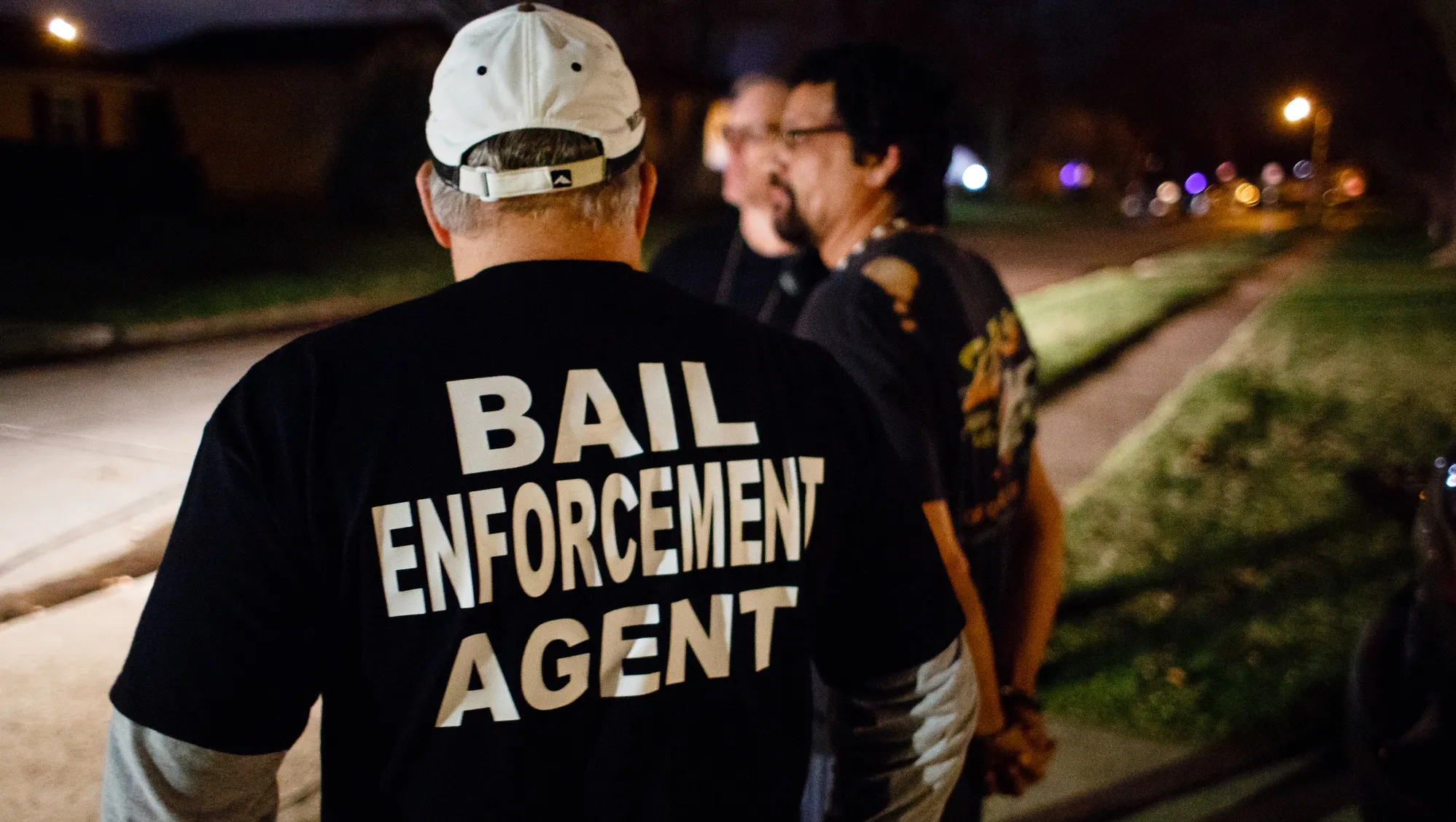 Gov. Greg Gianforte has signed legislation designed to curb reckless and dangerous bounty-hunting tactics in Montana that was drafted after a series of violent apprehensions, including one in Butte that led to homicide charges.
Gov. Greg Gianforte has signed legislation designed to curb reckless and dangerous bounty-hunting tactics in Montana that was drafted after a series of violent apprehensions, including one in Butte that led to homicide charges.
Republican Troy Downing, the state’s auditor and commissioner of Securities and Insurance, proposed House Bill 62, and it was sponsored by Republican Rep. Bill Mercer of Billings and Democrat Sen. Ryan Lynch of Butte.
Both chambers passed the bill by big margins with bipartisan support, and the Republican governor signed it Thursday.
The new law requires all bail recovery agents to be trained and licensed and, in most circumstances, notify police of planned apprehensions. They have to be 21 or older, cannot be convicted felons, and must be instructed on procedures for detaining people, their civil rights, the use of force and civil liability, among other things.
“Bounty hunter abuses are putting the public at risk,” Downing said Friday. “Our agency’s bill puts up sideboards to protect Montanans.
“Armed bounty hunters have broad arrest powers. Our bill ensures bounty hunters are not felons, receive training and alert law enforcement before arresting a fugitive. These are all common-sense requirements.”
Lynch has called it “common-sense legislation to ensure that the public is protected and the recovery agent is licensed and insured.”
Gianforte said the bill would help ensure “the bail bond industry operates in a manner that ensures public safety.”
But he vetoed a separate bill backed by many bondsmen in Montana that would have required bail agents to charge and collect at least 10 percent of cash bonds upfront. They say House Bill 808 would have eliminated “payment plans” and caused defendant debts that can lead to confrontations.
Downing opposed that measure and so did Giaforte, saying in his veto message that it would inhibit competition in the bail industry by fixing a minimum bail bond premium. The governor cited a letter from Downing, saying government should not impede the free market.
John Looney, president of the Montana Bail Agents Association, said Downing used “one regrettable incident in Butte” involving a mishandled recovery to justify sweeping industry changes.
He also said Downing’s opposition to House Bill 808 led to its veto and disregarded concerns about excessive bail premiums and exploitative payment plans that give an unjust edge to large, out-of-state bail corporations.
“By neglecting the mitigation of predatory practices and the preservation of public trust, the Commissioner’s actions have stifled the growth and stability of small, locally owned bail bond agencies integral to Montana’s economy and community,” Looney said in statements he sent to The Montana Standard.
Looney said House Bill 808 would have regulated bail premiums and prevented predatory practices.
“It guarantees financial transparency, risk balancing and contributes to a fairer and more accessible bail system,” Looney said.
Downing said he worked with the industry, law enforcement and other stakeholders in crafting the legislation, and several amendments were made to the bill to address concerns while still ensuring public safety.
Downing and Mercer have cited several reckless bounty hunts in recent years that put innocent people in danger, but say the incident in Butte was the tipping point that led to their legislation.
Prosecutors say on Dec. 19, 2021, bondsman Jay Hubber and another man, Nicholas Jaeger, barged into William Harris’ house in Butte looking for a bail jumper. Several other people were in the house, too.
Hubber tased the bail jumper and as they wrestled, Jaeger grabbed Hubber’s pistol and fatally shot Harris, prosecutors say. They charged Hubber and Jaeger — a convicted felon — with deliberate homicide and aggravated burglary.
Both men have pleaded not guilty and this week, District Judge Robert Whelan consolidated the cases so Jaeger and Hubber will be tried together. He set the trial for Oct. 2.
The new law also clarifies when bondsmen can revoke bail and initiate an arrest. Under previous law, they could arrest a defendant if they felt “insecure in accepting liability for the defendant.”
Downing says bad actors have used that broad arrest authority to coerce defendants into performing tasks, such as helping recover fugitives, or face incarceration. In other cases, he said, bondsmen revoked bail only to post the defendant’s bond again and charge additional fees.
To make an arrest under the new law, the agent must have probable cause to believe the defendant will fail to appear in court or has violated conditions of their release.
“Allowing a defendant who is out on bond to be re-arrested because the bondsman felt ‘insecure’ is the catalyst to many cases of abuse we saw across our state,” Downing said. “With the exception of exigent circumstances, the standard is now probable cause to arrest a defendant and that arrest must be reported to our agency.”
Click HERE to view the full article.
Was this helpful?
Please give us your feedback!
Please let us know how we could improve this article.
